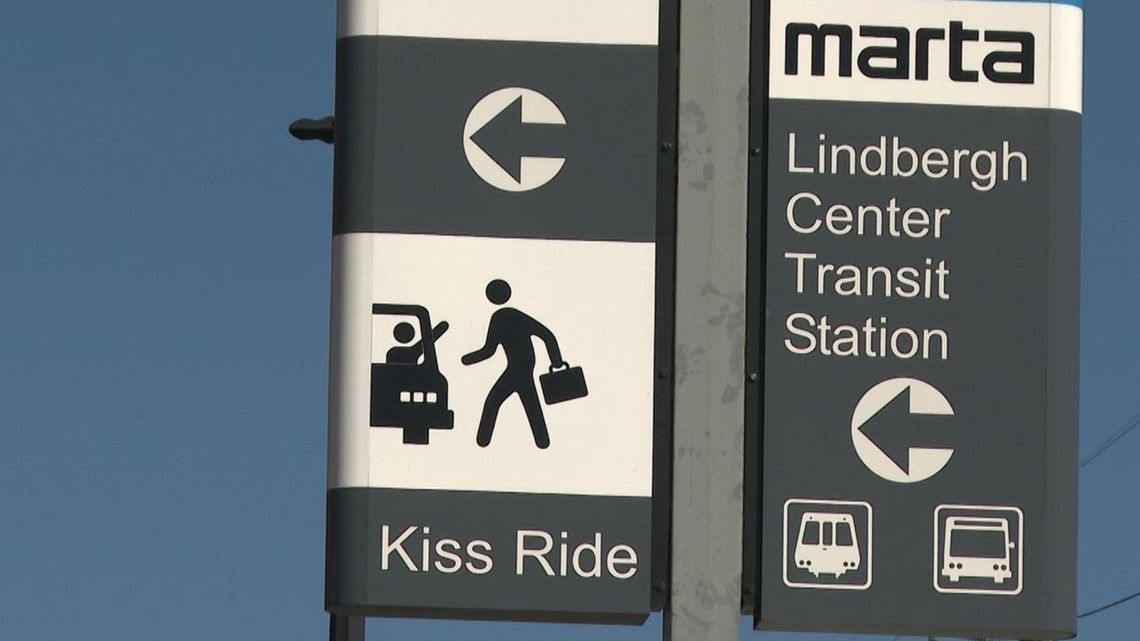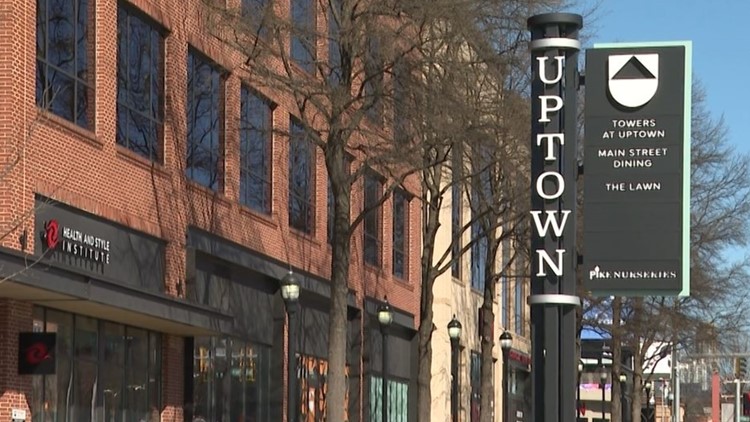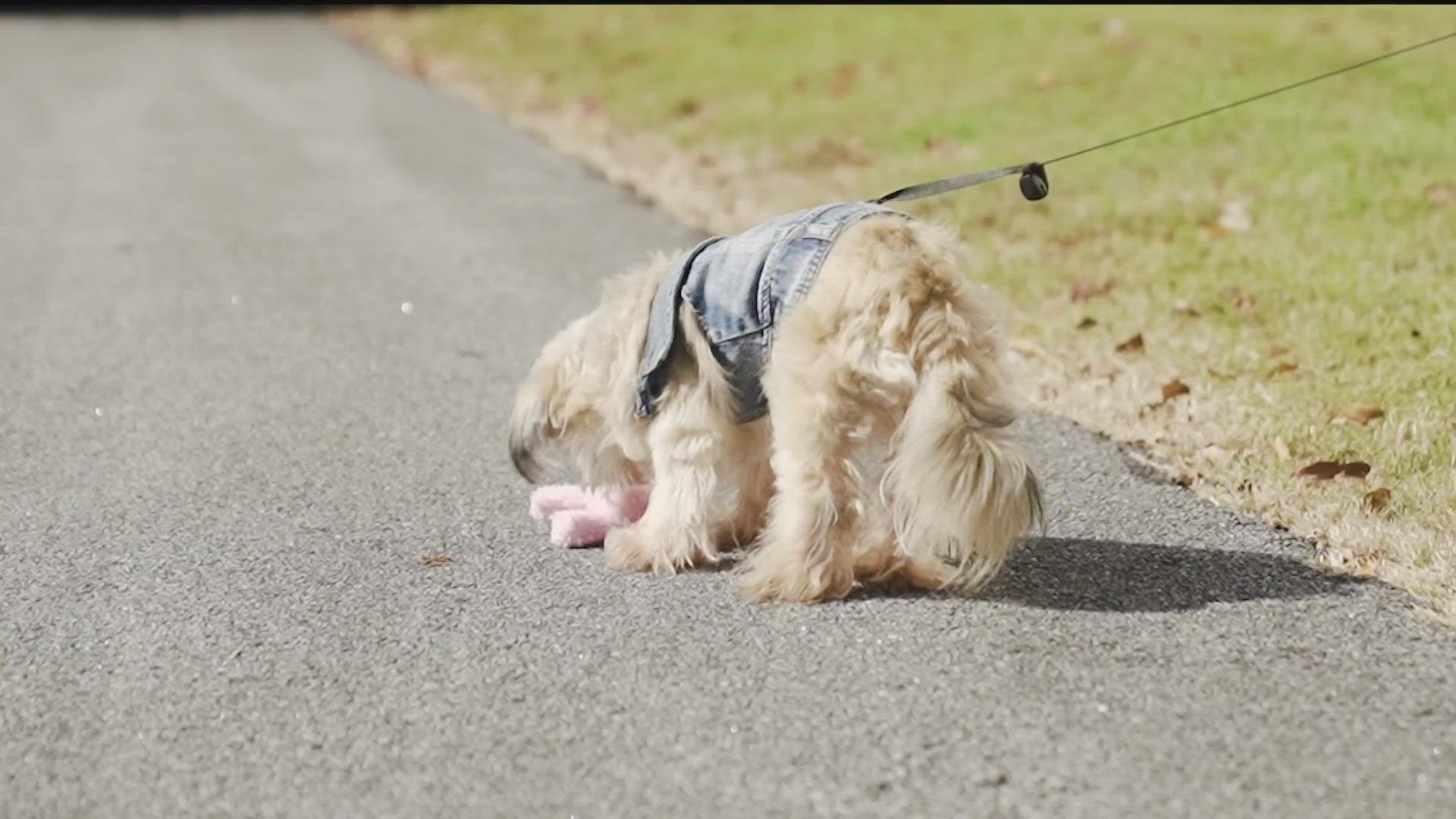ATLANTA — At the intersection of Piedmont Road and Lindbergh Drive is a historic Atlanta neighborhood that is at risk of losing its history.
As Atlanta continues to transform with ongoing construction projects, rebranding efforts have sparked debates and conversations centered around historic communities and developer communities. The most recent example is Lindbergh's quiet transformation to Uptown Atlanta.
This wouldn't be the first time.
Atlanta's historic communities are prominently part of the city’s identity. Some notable communities are Bankhead, Kirkwood, West End, Old Fourth Ward, Mechanicsville, and Collier Heights, among others. Revitalization efforts have led to discussions about maintaining the integrity and history of neighborhoods.
Developer communities emerged over the years through mixed-use development initiatives and transformed into rebrands of distinct areas. Recently, West Midtown emerged as a branded community and Upper Westside transformed into a branded location in Atlanta a few years ago.
Lindbergh City Center is now following suit.
The 47-acre destination is now being rebranded with signage and development next to the Lindbergh MARTA Station. This historic neighborhood was named after Charles Lindbergh, an aviation pioneer who sparked the city’s aspirations for what would become Hartsfield-Jackson Atlanta International Airport.


Now, the Lindbergh City Center will be referred to as Uptown Atlanta, leaving some questioning in the neighborhood will lose its historic connection.
The developer, Rubenstein Partners, issued a statement explaining that the space was acquired in 2019 and the plan was to transform it into a mixed-use space with an office atrium, restaurants, retail, and green space.
Atlanta filmmaker and historian King Williams says the changing landscape of Atlanta is at a culture clash.
“The Atlanta of today is really being built for the people who won't be here tomorrow,” he said. “A lot of these developments are built for people who are only going to be here for the next three to five years, and not necessarily for people who are going to be here 30 to 50 years.”
Longtime real estate agent Nicole Howard says the transformation in the city also has a lot to do with the amount of people moving to Atlanta.
“I feel like millennials are wanting to come here. They're attracted to the economy, the diverse economy, the cultural attractions that we have to offer here in Atlanta. So I definitely think it's geared more towards, you know, the future,” Howard said.
Williams says change isn’t always a good thing. He said it comes at a cost, and sometimes the cost is the integrity and the historic preservation of historic communities.
“I think this is just the next phase of cultural colonization in Atlanta, similar to the Upper Westside or West Midtown. This is just the next extension of that,” he said.
Williams explained that cultural colonization is when a culture already exists but an outside force ignores it and claims it as its own.
"Lindbergh is something that we all know. There's a history here. But when you start to name things, you're kind of dismissing the culture, dismissing the history,” he explained.
Financial literacy expert Ash Cash says developer communities with new names are not new in the city or throughout the United States.
“We see it all the time. And I think that this playbook has happened already. It's not going to feel like what it used to feel like. It's catering to the money and not the history,” Ash Cash said.
Cash, Williams and Howard are community stakeholders. When asked about the responsibility developers should keep in mind when choosing to rebrand an area, they said community voices should be taken into consideration.
“I think that No. 1: really understanding the history of the place that they're coming into and incorporating that history in the name, and so in some way, shape, form or fashion,” Cash said. “While we understand renaming something "uptown" or "upper" - having these names are more attractive from a business perspective, but there might be a way to maybe call it "Uptown Lindbergh," maybe keep the same culture and the history in there, and maybe rebrand it in a way that it doesn't lose its its essence."
Williams agrees. He says community conversations are needed and should be included in the process.
“Simply lean into that history," he said, "everything from your local street signs to your placards and things like that, but also talking to developers directly."
11Alive reached out to the developer of Uptown Atlanta to understand how "Uptown Atlanta" was decided as the new brand. The company declined an on-camera interview.
However, over email, a spokesperson sent over the following statement:
“With such a strategic location, we recognized that this transit-oriented development represented a significant placemaking opportunity that merited a unique name as a distinct and authentic urban center with metro Atlanta.”



